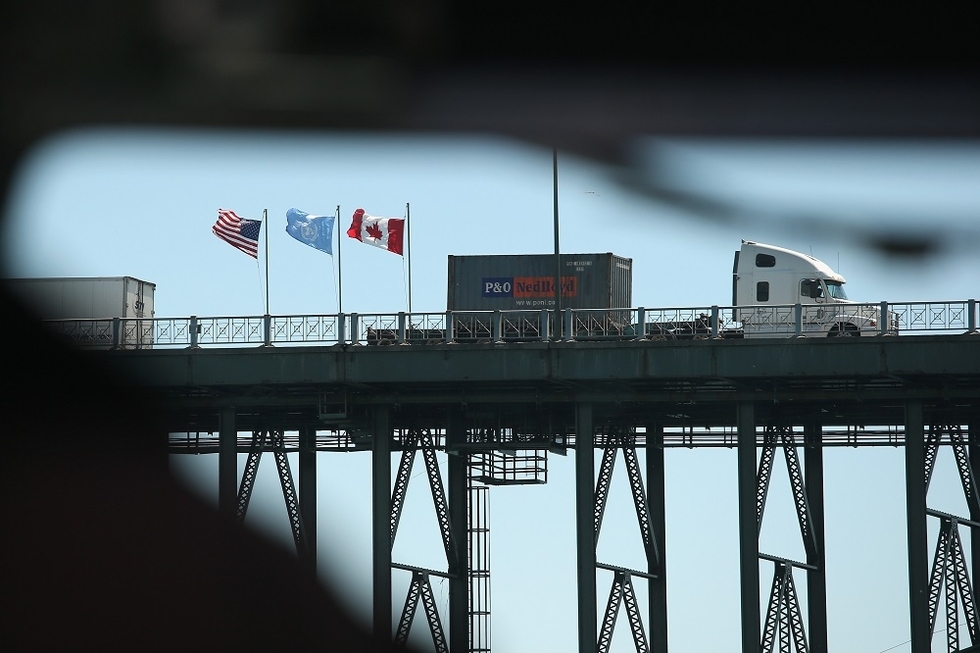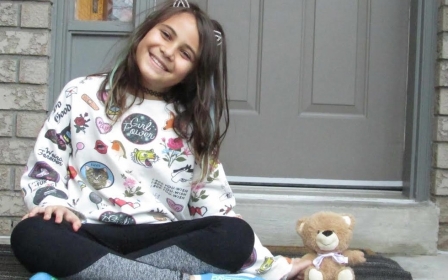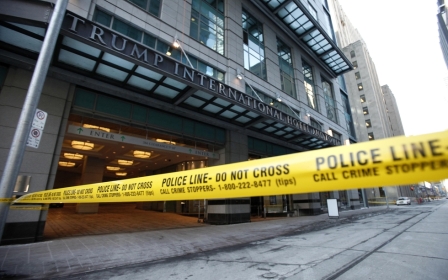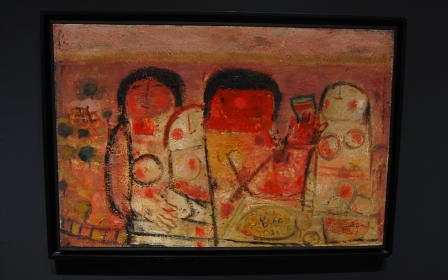US immigration restrictions may push refugees to Canada

TORONTO, Canada – They trudged through waist-high mounds of snow and trekked across barren farmland as temperatures dropped to -20°C in December.
It took them more than seven hours to make it across the US-Canada border and into Manitoba in central Canada. And if it were not for a truck driver who spotted them in a field and picked them up, their story could have taken a tragic turn.
A question can be raised about whether the US will continue to meet the safe third country designation under Trump’s new administration, according to the Canadian Council for Refugees
“I would lose my life,” Seidu Mohammad, a Ghanaian refugee, told the Winnipeg Free Press about his harrowing journey into Canada on 24 December. He travelled with another asylum seeker from Ghana, Razak Iyal.
“The doctors and nurses are saying I’m lucky because in another hour or two hours, things would have been so different,” Mohammad said.
Even though the two men are now recovering in a Winnipeg hospital after having surgery, doctors said Mohammad was expected to lose all his fingers and a toe from frostbite.
Asylum claims increase
Mohammad and Iyal have come to represent the hundreds of men, women and children that are pushed under existing laws to enter Canada without passing through a border crossing, or alerting the Canadian authorities, to make their refugee claim.
Between April and 8 December 2016, more than 400 asylum seekers crossed from the US into Manitoba near the town of Emerson without legal authorisation, according to the Canadian Border Services Agency (CBSA).
'People are putting their lives at risk in this cold winter, in this dangerous snow, because of the Canada-US Third Country Agreement'
- Bashir Khan, immigration lawyer
Another 823 refugee claimants came into Quebec without a required visa between 1 April and 30 November 2016 and they were intercepted inside the country by the Royal Canadian Mounted Police.
Most asylum seekers first entering Manitoba are from Somalia, followed by Eritrea and Djibouti, while asylum seekers arriving in Quebec hail from Eritrea, Sudan and Syria.
“The CBSA will not speculate why there was an increase in asylum seekers attempting to enter Canada from the US illegally within the last years,” CBSA spokesperson Nicholas Dorion told MEE in an emailed statement.
Khan said that while refugee claimants are landing in Manitoba, few are actually making their claims in the province, opting instead to move to bigger Canadian cities in Ontario and Quebec.
But even though the number of asylum claims has increased across Canada in recent years, the figures must be put in perspective, said Janet Dench, executive director of the Canadian Council for Refugees.
“If there’s an increase now, it’s partly because the numbers have gone down dramatically in the last few years,” she said.
Dench told Middle East Eye that the dire situation for refugees around the world should make it no surprise that people would be willing to travel farther, and take larger risks, to find a safe haven.
The United Nations refugee agency estimates that 65.3 million people have been forced from their homes around the world, including about 21.3 million refugees.
“Canada is far removed and geographically isolated in terms of most of the situations that refugees are fleeing, but people when they’re desperate, as refugees are, they do what they need to do in order to try to get to safety if they can,” Dench said.
Canada-US agreement fuelling irregular arrivals
Still, every Canadian immigration lawyer and asylum and refugee expert contacted by MEE agreed that one factor has fuelled refugees’ decisions to avoid official border crossings to make their claims: the Canada-US Safe Third Country Agreement (STCA).
“People are putting their lives at risk in this cold winter, in this dangerous snow, because of the Canada-US Third Country Agreement,” Khan said. “There is no need for that. Let anyone who wants to make an asylum claim be able to come to the proper border crossing without [putting] their life at risk.”
But with US President Donald Trump enacting new measures to restrict refugee resettlement and visas for nationals from the Middle East and North Africa, and a climate of fear and prejudice taking hold south of the border, the number of refugee claims in Canada may continue to climb.
Coming into force at the end of 2004, the Canada-US Safe Third Country Agreement orders refugee claimants to make their request for refugee status in the first safe country they reach.
For example, if a refugee claimant from Somalia lands in the US and is refused refugee status, he or she cannot subsequently go to the US-Canada border to request refugee status in Canada.
The STCA “generally only applies to claims made at the border with the United States,” explained Isabelle Vigneault, communications advisor at Immigration, Refugees and Citizenship Canada (IRCC), in an emailed statement.
A handful of exceptions to the rule exists to allow a refugee to make a formal claim in Canada after first landing south of the border, including having a relative already in Canada, or being an unaccompanied minor.
But if a refugee claimant that does not meet these exceptions manages to enter Canada (not at a border crossing), he or she becomes eligible to make a refugee claim and the Canadian authorities will have to evaluate their case.
“It provides an incentive for people not to present themselves at an orderly way at the border,” said Mitchell Goldberg, an immigration lawyer in Montreal and president of the Canadian Association of Refugee Lawyers.
Goldberg told MEE that the agreement makes no sense from the point of view of refugee protection, and it also flawed from a security perspective.
“I would think it’s in Canada’s interest that people present themselves at the border, are identified, their fingerprints are taken, they have to fill out application forms, and if Canadian immigration has serious concerns about their identity or about their security, they do have the power to detain them,” Goldberg said.
“In my opinion, the best thing would be if Canada and the United States scrapped that agreement, [and] threw it into the trash can; that’s where it belongs,” he said.
US: A ‘safe country’?
Government spokesperson Vigneault said Canada’s Immigration and Refugee Protection Act requires a “continual review” of all the countries Canada recognises as meeting the definition of a safe third country.
“The purpose of the review process is to ensure that the conditions that led to the designation as a safe third country continue to be met,” she said. “The United States meets the conditions for designation as a safe third country.”
But according to Dench, a question can be raised about whether the US will continue to meet the safe third country designation under Trump’s administration.
In the coming days, Trump is expected to sign a temporary halt to refugee admission from all countries entering the US, and a ban on visas for nationals from Syria, Libya, Iran, Iraq, Yemen, Sudan and Somalia.
Sources told the National Iranian American Council the ban could range from 30 days to several months, “after which a more stringent visa application process with ideological tests will be put in place”.
“This is discriminatory. This is un-American. And last but not least: this is dangerous as it pits Americans against Americans while undermining the very principles of inclusivity and tolerance that made America great,” the group posted on its website on Tuesday.
Dench said that if refugee protections decrease under Trump, “it will mean even more that the US cannot correctly be called a safe third country”.
“That might be something that would spur the Canadian government to withdraw [from the STCA] or… the courts might tell the Canadian government that it’s not feasible to call the US safe.”
New MEE newsletter: Jerusalem Dispatch
Sign up to get the latest insights and analysis on Israel-Palestine, alongside Turkey Unpacked and other MEE newsletters
Middle East Eye delivers independent and unrivalled coverage and analysis of the Middle East, North Africa and beyond. To learn more about republishing this content and the associated fees, please fill out this form. More about MEE can be found here.




